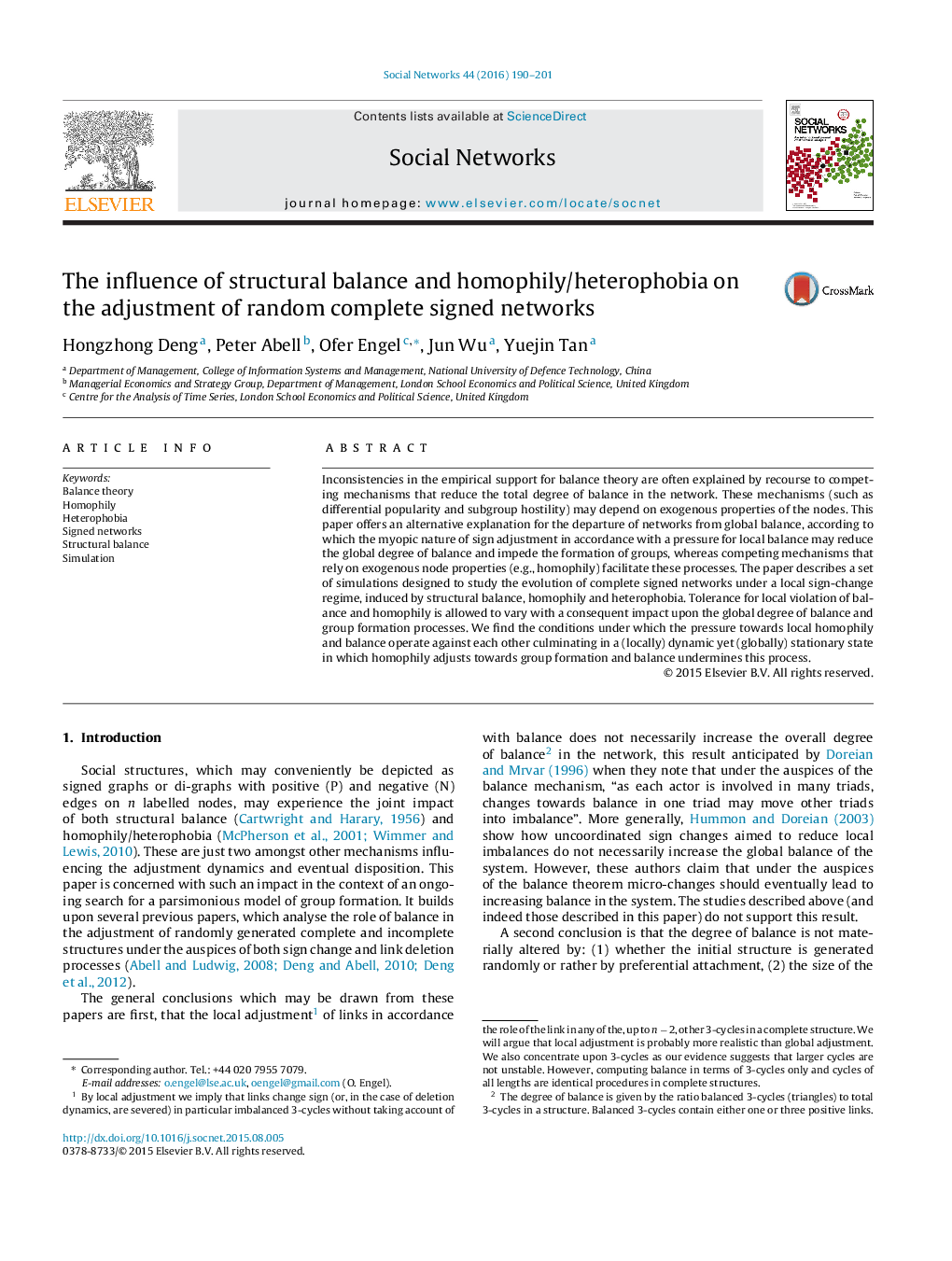| Article ID | Journal | Published Year | Pages | File Type |
|---|---|---|---|---|
| 7538575 | Social Networks | 2016 | 12 Pages |
Abstract
Inconsistencies in the empirical support for balance theory are often explained by recourse to competing mechanisms that reduce the total degree of balance in the network. These mechanisms (such as differential popularity and subgroup hostility) may depend on exogenous properties of the nodes. This paper offers an alternative explanation for the departure of networks from global balance, according to which the myopic nature of sign adjustment in accordance with a pressure for local balance may reduce the global degree of balance and impede the formation of groups, whereas competing mechanisms that rely on exogenous node properties (e.g., homophily) facilitate these processes. The paper describes a set of simulations designed to study the evolution of complete signed networks under a local sign-change regime, induced by structural balance, homophily and heterophobia. Tolerance for local violation of balance and homophily is allowed to vary with a consequent impact upon the global degree of balance and group formation processes. We find the conditions under which the pressure towards local homophily and balance operate against each other culminating in a (locally) dynamic yet (globally) stationary state in which homophily adjusts towards group formation and balance undermines this process.
Related Topics
Physical Sciences and Engineering
Mathematics
Statistics and Probability
Authors
Hongzhong Deng, Peter Abell, Ofer Engel, Jun Wu, Yuejin Tan,
